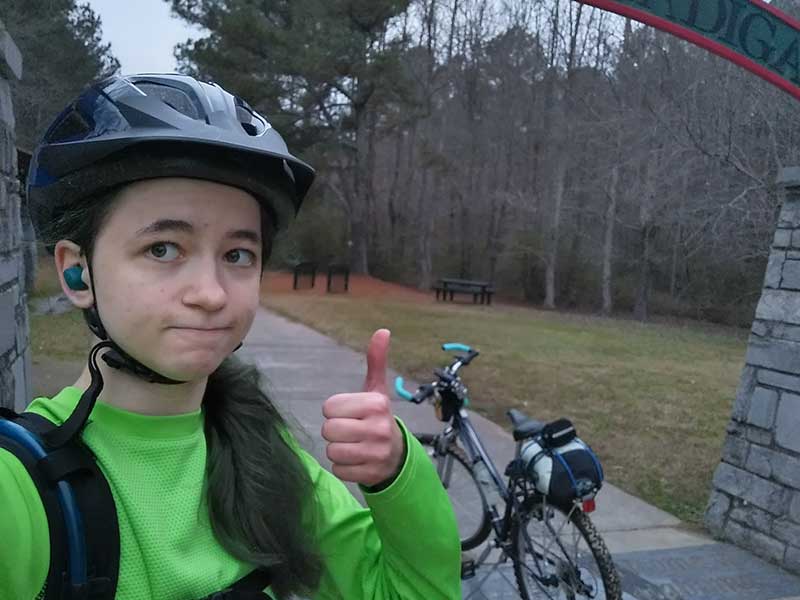
Emily Burns-Kaurin
NASA Citizen Scientist
Druid Hills High School | Atlanta, Georgia
Georgia State University | Atlanta, Georgia
Physics
Emily is a student at Georgia State University.
At some point in 2015, near the end of eighth grade, I was randomly clicking around the NASA website and found this thing called "Disk Detective" that sounded cool. I've always loved space and learning how the universe works, so of course I was quickly hooked – it was amazing that these light blobs on the screen represented whole other worlds. My poor friends had to put up with several weeks of rambling about dust around stars after that.
I'm currently majoring in physics, and I work as a cook to help pay for school. Some of my hobbies are playing Dungeons and Dragons with friends, gaming, art/music, attempts at astrophotography, and being outside. I've gotten really into biking, and I spend hours figuring out how to fix the bike when it decides to be rude and obey the laws of motion (or makes its own laws and randomly falls apart).
I learned about how much time, people, and resources are involved to make everything work. There's so much that I had no idea about before, from all you need to do to even get observing time on a telescope to all the many fancy databases that get used to figure out how everything connects.
In astronomy, data are collected through many different sensors, from land-based telescopes to satellite-based instruments, each of which houses the data they collect in a database. An astronomer interested in studying an object needs to find all the data about that object in all of those databases and in all the previously published literature. Luckily, there are some established data archives that hold data from multiple missions. Other databases archive astronomical literature. These archives make it easier to find all the data and prior work on an object, but it is still a lot of work to query all the databases, verify the results of the queries, and then evaluate and analyze those results. This is the core work of astronomers, and Disk Detective gave me my first experience in doing it.
These astrophysics archives are open to anyone to use. Just visit the NASA Astrophysics Data Centers home page.
I'm listed as a co-author on "Follow-up Imaging of Disk Candidates from the Disk Detective Citizen Science Project: New Discoveries and False Positives in WISE Circumstellar Disk Surveys." Disk candidates basically look like stars that are weirdly bright at certain infrared wavelengths. When we find one, we look for other objects or energy sources that could be making the candidate look brighter than it is. If we can't find any, we are one step closer to confirming that the candidate could be a disk or a young planetary system. For this paper, I helped with the visual analysis of disk candidates to find objects hiding in the background that could affect the candidates’ brightness and looked for relevant information in databases.
So much – I was clueless going into this project! Disk Detective introduced me to so many things I didn't even know existed. One major thing was how to use SIMBAD (Set of Identifications, Measurements, and Bibliography for Astronomical Data) and similar sites to find objects and information about them. Forming the connection between the image and the numbers was really cool. I got to see how science works behind the scenes, and that helped solidify my desire to study space in the long run.
Give it a try! The universe is huge, and there is so much left to discover and understand.
Planetary science is a global profession.

